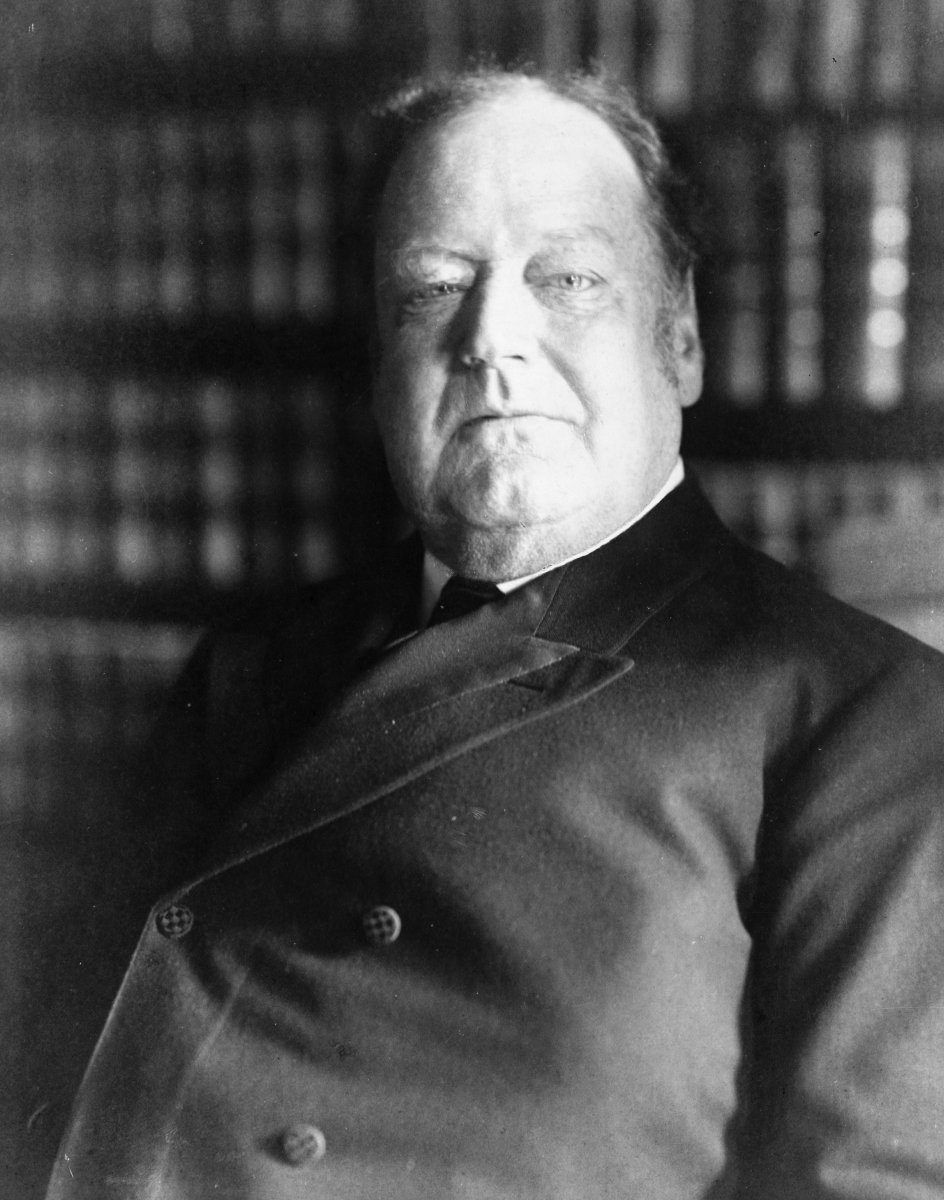Edward Douglass White, American lawyer, jurist, and politician, 9th Chief Justice of the United States (d. 1921)
Edward Douglass White Jr. (November 3, 1845 – May 19, 1921) was an American politician and jurist from Louisiana. White served on the U.S. Supreme Court for 27 years, first as an associate justice from 1894 to 1910, then as the ninth chief justice from 1910 until his death in 1921. White is known for formulating the Rule of Reason standard of antitrust law.
Born in Lafourche Parish, Louisiana, White practiced law in New Orleans after graduating from the University of Louisiana. He also attended the College of the Immaculate Conception, present-day Jesuit High School in New Orleans, class of 1865. His father, Edward Douglass White Sr., was the 10th Governor of Louisiana and a Whig US Representative. White fought for the Confederacy during the Civil War and was captured in 1865. After the war, White won election to the Louisiana State Senate and served on the Louisiana Supreme Court. As a member of the Democratic Party, White represented Louisiana in the United States Senate from 1891 to 1894.
In 1894, President Grover Cleveland appointed White as an Associate Justice of the Supreme Court of the United States. In 1910, President William Howard Taft elevated him to the position of Chief Justice. The appointment surprised many contemporaries, as Taft was a member of the Republican Party. White served as Chief Justice until his death in 1921 when he was succeeded by Taft.
He sided with the Supreme Court majority in Plessy v. Ferguson, which upheld the legality of state segregation to provide "separate but equal" public facilities in the United States, despite protections of the Fourteenth Amendment to equal protection of the laws. In one of several challenges to Southern states' grandfather clauses, used to disfranchise African-American voters at the turn of the century, he wrote for a unanimous court in Guinn v. United States, which struck many of them down. He also wrote the opinion in the Selective Draft Law Cases, which upheld the constitutionality of conscription.

1845Nov, 3
Edward Douglass White
Choose Another Date
Events on 1845
- 11Mar
Treaty of Waitangi
Flagstaff War: Unhappy with translational differences regarding the Treaty of Waitangi, chiefs Hone Heke, Kawiti and Māori tribe members chop down the British flagpole for a fourth time and drive settlers out of Kororareka, New Zealand. - 13Mar
Violin Concerto (Mendelssohn)
Felix Mendelssohn's Violin Concerto receives its première performance in Leipzig with Ferdinand David as soloist. - 19May
Franklin's lost expedition
Captain Sir John Franklin and his ill-fated Arctic expedition depart from Greenhithe, England. - 13Oct
United States Congress
A majority of voters in the Republic of Texas approve a proposed constitution that, if accepted by the U.S. Congress, will make Texas a U.S. state. - 20Nov
Battle of Vuelta de Obligado
Anglo-French blockade of the Río de la Plata: Battle of Vuelta de Obligado.

 English
English  español
español  français
français  português
português  русский
русский  العربية
العربية  简体中文
简体中文